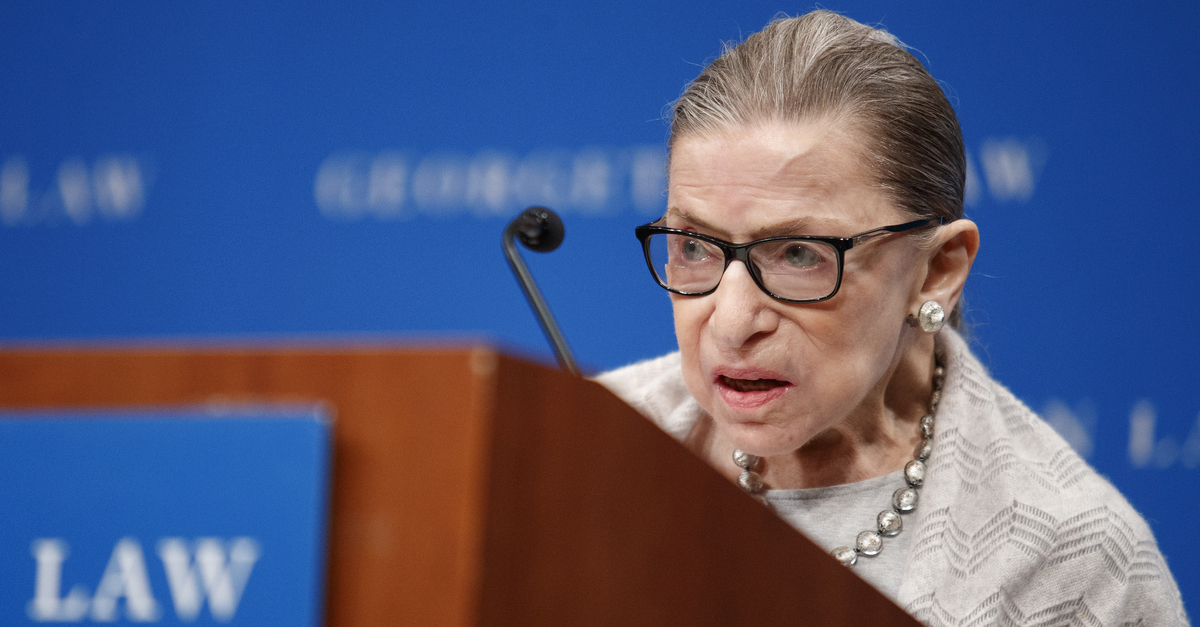Americans Apparently Flip-Flop on Filling Supreme Court Vacancies After Ginsburg’s Death; Want November Winner to Nominate Replacement

Tom Brenner/Getty Images
A majority of Americans want the winner of November’s presidential election to nominate a replacement for the late Supreme Court Justice Ruth Bader Ginsburg, according to a new poll by Reuters.
The survey, conducted Sept. 19-20, found that 62 percent of American adults would like to see the seat filled by the candidate elected in November. The figure included eight out of 10 Democrats and five in 10 Republicans. Thirty percent of respondents said Ginsburg’s death made them more likely to vote for Biden, while 25 percent said they were more likely to vote for Trump. A plurality — 38 percent — said it didn’t make a difference.
The findings contradict a poll released Saturday by Marquette Law School that found a majority would have preferred to see the Senate act on Judge Merrick Garland’s nomination after the 2016 death of Justice Antonin Scalia. That poll — conducted Sept. 8-15, before Ginsburg’s September 18 death — found 73 percent said it was “wrong” for Senate Republicans to block Garland’s nomination to the court, including 54 percent of Republicans and 84 percent of Democrats.
The results of Marquette’s poll were similar to Reuters polling conducted in 2016. A survey in April of that year found 55 percent of respondents wanted the Senate to hold hearings on Garland’s nomination.
President Barack Obama nominated Garland to succeed Scalia on the court in March 2016, but Republicans led by Senate Majority Leader Mitch McConnell (R-KY) declined to hold hearings until after the election, citing the fact that they held the Senate majority. President Donald Trump ultimately nominated Neil Gorsuch to fill the seat, who Republicans confirmed in April 2017.
Ginsburg’s death on Friday — 46 days before the election — prompted Democrats to demand that Republicans wait until after the election to fill her seat. McConnell has said he has no plans to do so. Republican Sens. Lisa Murkowski (AK) and Susan Collins (ME) have indicated that they agree with Democrats on the matter, which means their party can afford to lose support from just one more member before Vice President Mike Pence would be forced to cast a tie-breaking vote to confirm a nominee.
Republicans presently hold a 53-47 majority in the Senate, a number that could change shortly after the election. Mark Kelly, the Democratic nominee for Senate in Arizona, could be sworn in as early as November 30 in the event he topples incumbent Republican Sen. Martha McSally. Other incoming senators will be sworn in on Jan. 3.
President Donald Trump said Monday he choosing from a list of five women to fill Ginsburg’s seat, including Allison Jones Rushing; Amy Coney Barrett; and Barbara Lagoa. All are federal judges.




